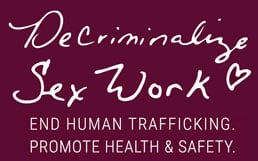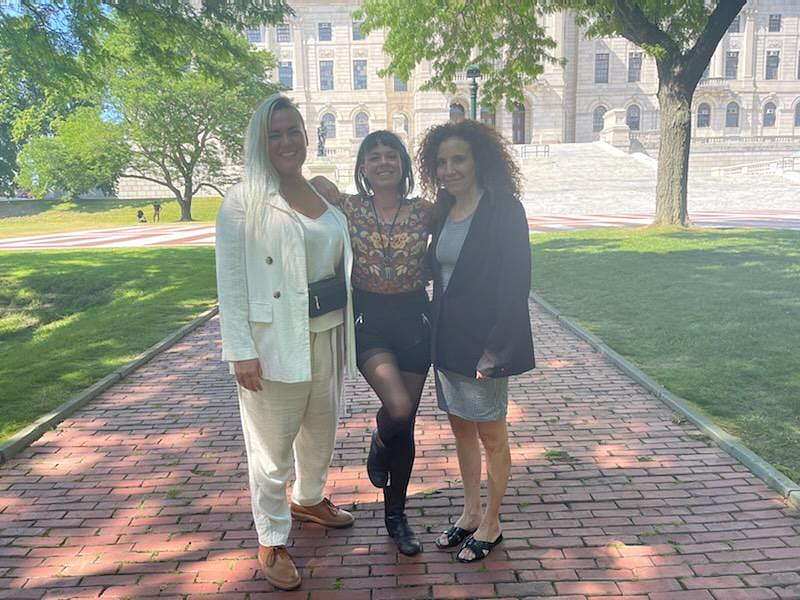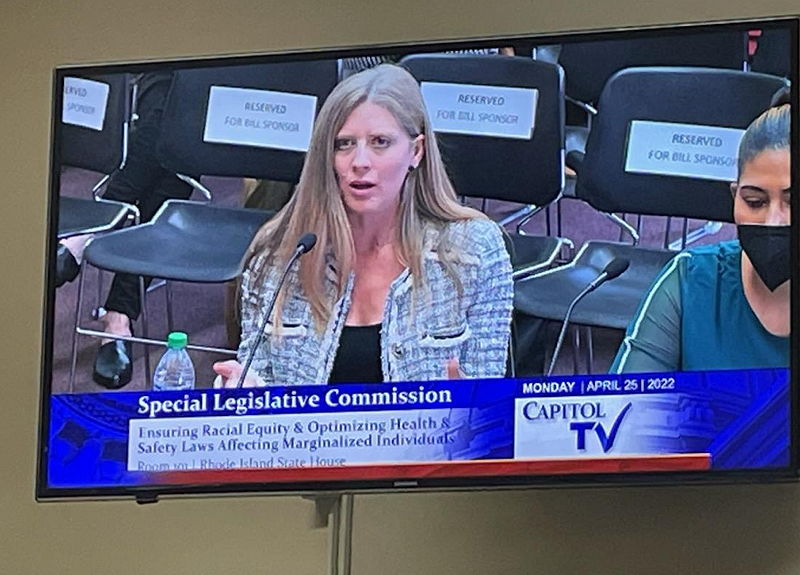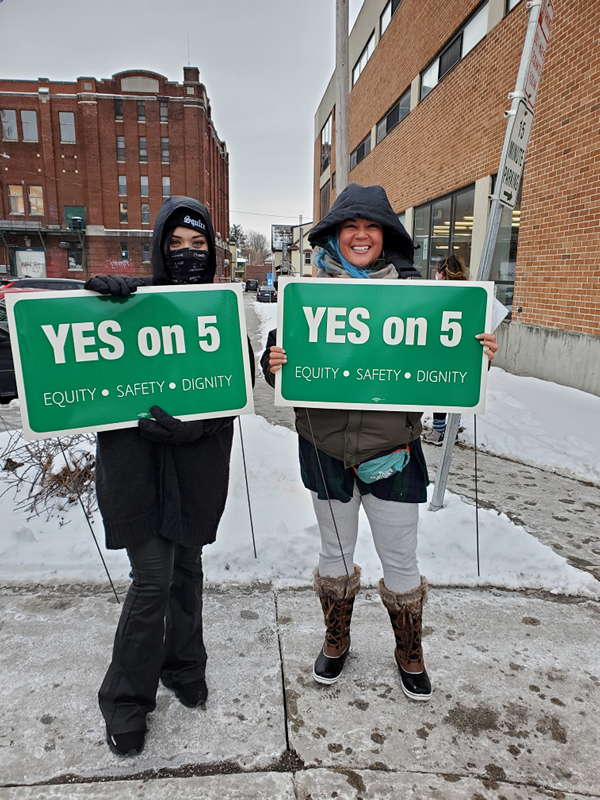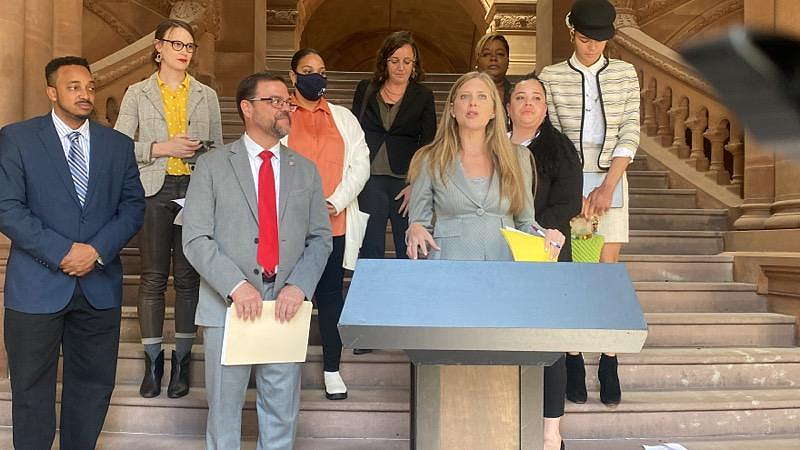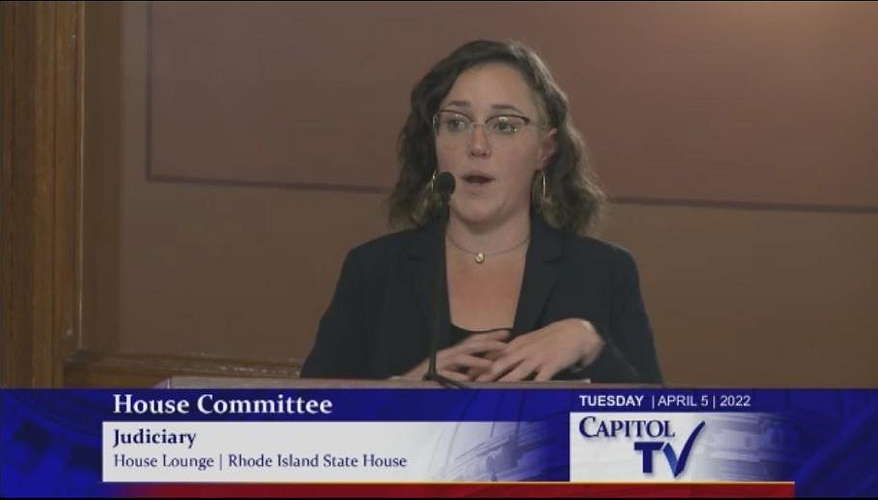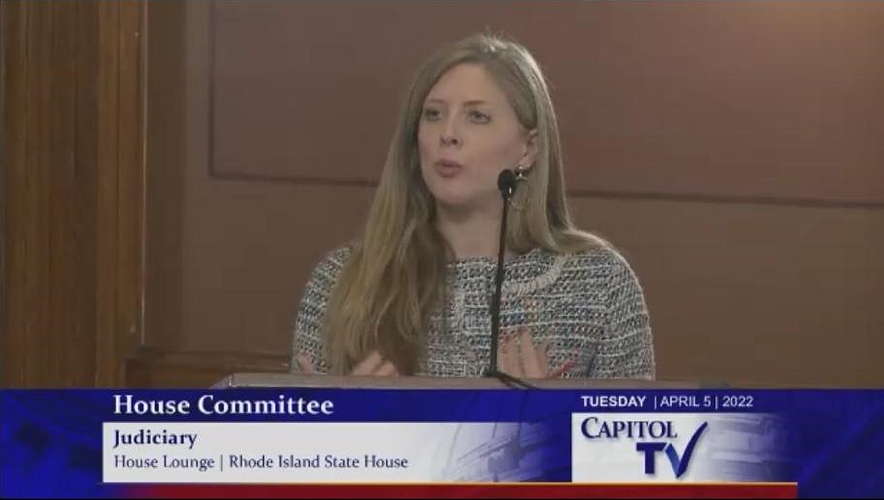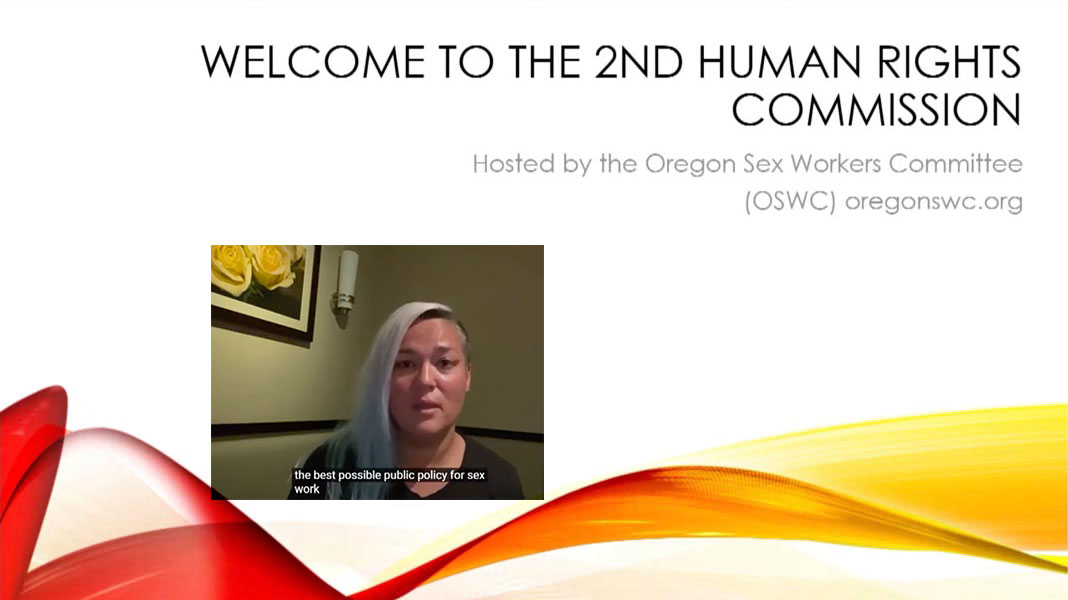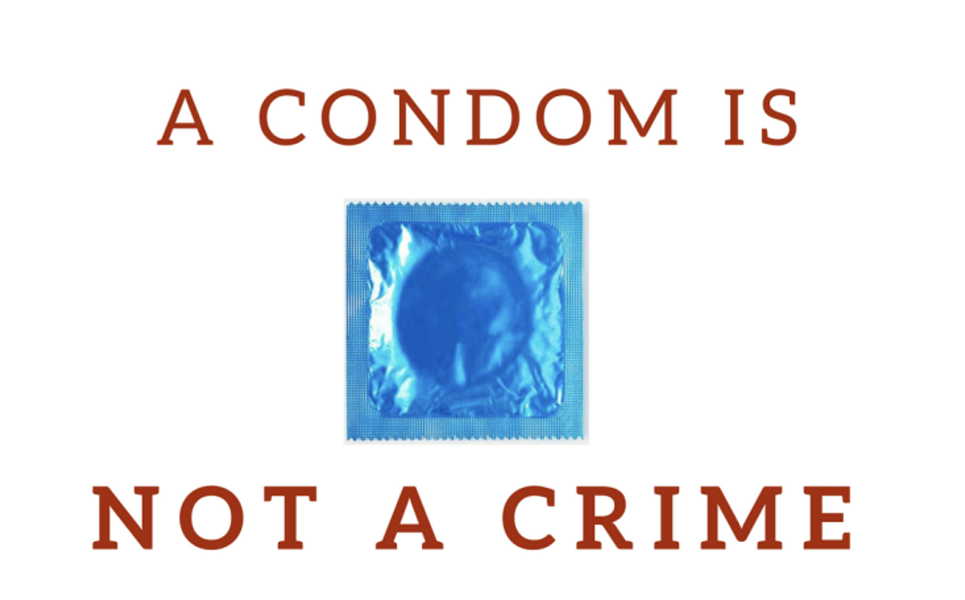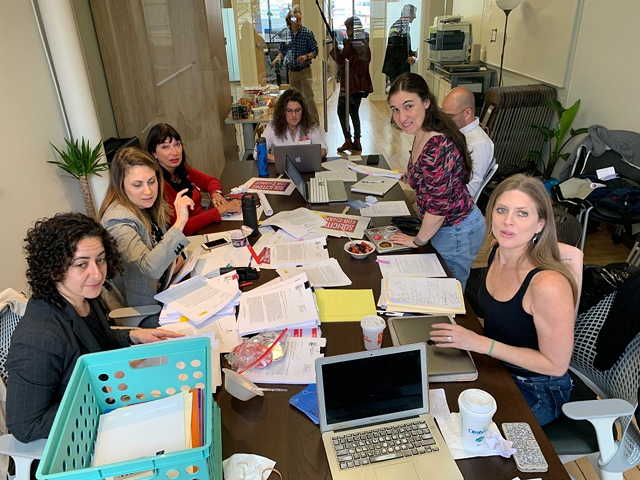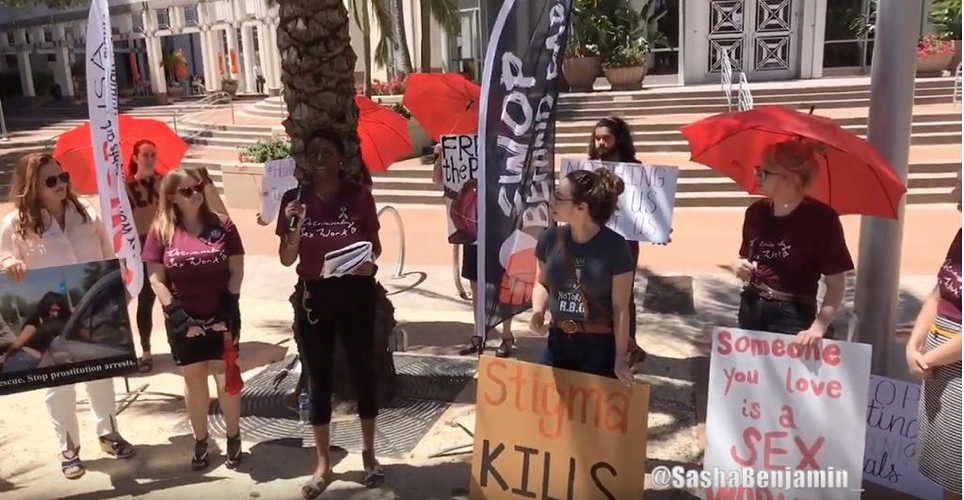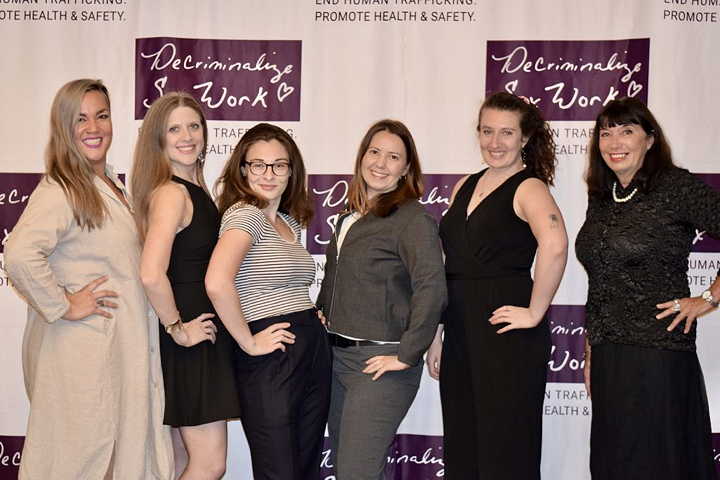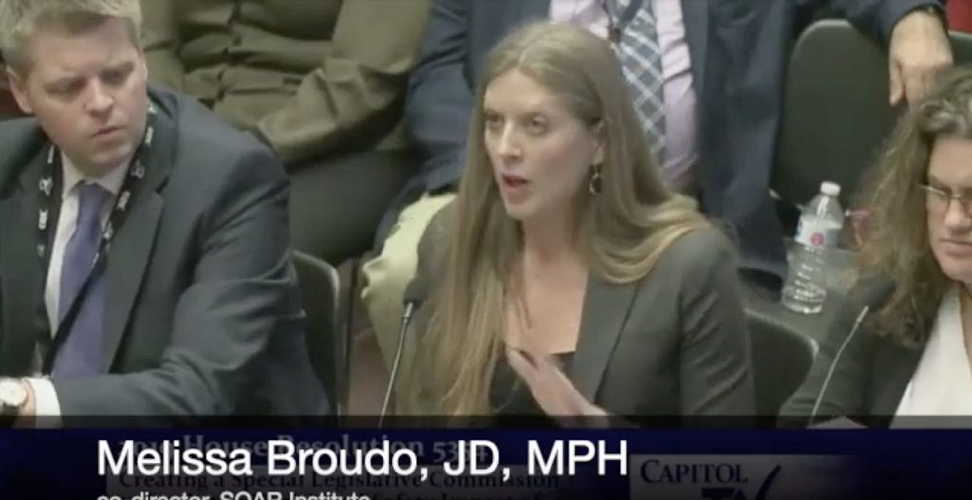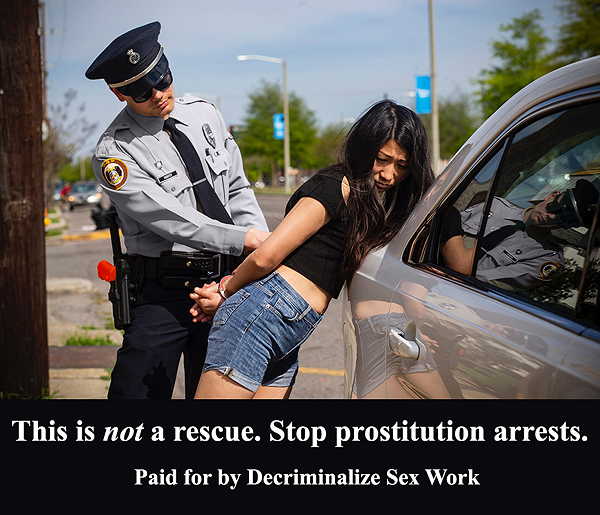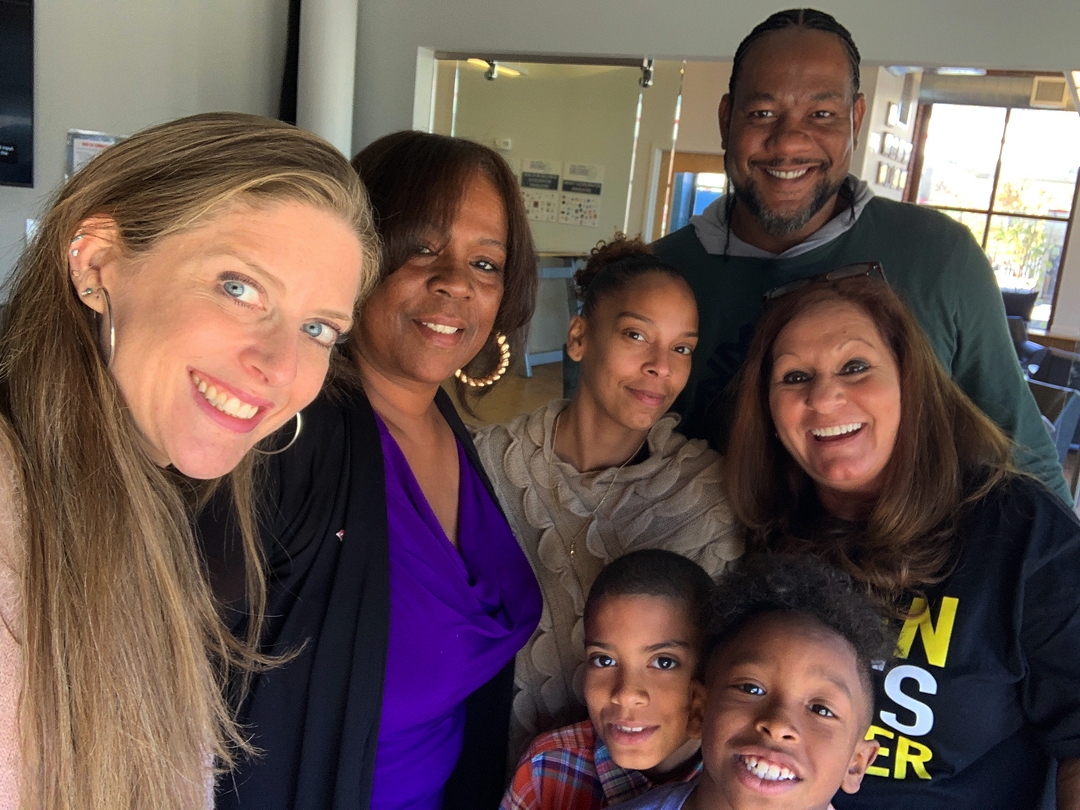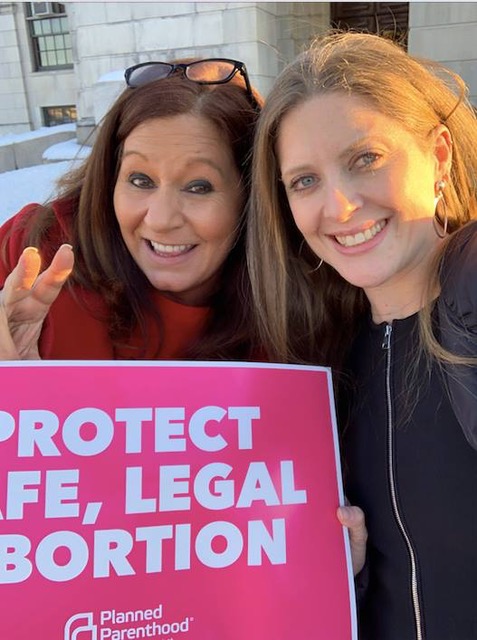May 1, 2023
As sex work related reforms gain momentum around the country, Decriminalize Sex Work (DSW) staff members are busier than ever. Within the span of just a few weeks, staff members testified in Maine, Massachusetts, and Rhode Island to advocate for laws that would decrease trafficking and increase public health and safety. Ensuring that legislators have the most compelling, accurate evidence in support of decriminalization and understand the realities of the Entrapment Model has never been more important.
Massachusetts
DSW Staff Attorney Rebecca Cleary testified in front of the Joint Judiciary Committee during a hearing that lasted nearly five hours. She advocated for passage of H1757, “An Act to promote the health and safety of people in the sex trade” and H1758/S1046, “An Act to prevent human trafficking and improve the health and safety of sex workers” and shared DSW’s strong opposition to H1597/S983, “An Act to strengthen justice and support for sex trade survivors.”
Two of these bills, H1757 and H1597/S983, seem similar on their face; in fact, they reflect two opposing approaches to the criminalization of sex work and two different philosophical understandings of sexual labor. H1757, “An Act to promote the health and safety of people in the sex trade” would fully decriminalize consensual adult sex work, repealing laws criminalizing both the consensual sellers and buyers of sexual services. H1597/S983, “An Act to strengthen justice and support for sex trade survivors” removes laws prohibiting the sale of sexual services but continues to criminalize buyers — in fact, significantly increasing penalties for the purchase of sexual services. This policy, known as the Entrapment Model, Nordic Model, or the Equality Model, among other names, has unambiguously failed to protect the health and safety of sex workers. The third bill, H1758/S1046, “An Act to prevent human trafficking and improve the health and safety of sex workers” creates a series of incremental policy measures to protect the human rights of sex workers and trafficking survivors. The measures include repealing the law that bans loitering for the purposes of prostitution, enacting a study commission that would research the criminalization of sex work and provide recommendations, and creating an immunity law for sex workers.
Immunity protections create an important tool for law enforcement in their efforts to identify and prosecute perpetrators of violence and trafficking. Sex workers and trafficking survivors are especially vulnerable to violence and exploitation — but frequently don’t report crimes perpetrated against them due to fear of arrest. When those abusers aren’t discovered by law enforcement, they are able to continue violence and exploitation with impunity. Additionally, sex workers and buyers of sex are in unique positions to witness trafficking and exploitation of minors, but due to criminalization they cannot safely report these crimes. Thus, immunity policies serve a dual purpose: they allow victims and witnesses of crime to safely seek the services they need without fear of arrest, and they also provide invaluable tools for law enforcement investigating crimes including human trafficking, assault, and even murder. Alaska, California, Colorado, Montana, New Hampshire, Oregon, Utah, Vermont, and Washington have existing immunity laws, and similar bills were introduced in Hawaii, New York, Rhode Island, and Tennessee this year. Individuals and organizations with a breadth of priorities and experiences have openly supported these policies across the country, including trafficking survivors, advocates, sex workers, prosecutors, and police departments.
Maine
Staff testified in opposition to LD1435, “An Act to Reduce Commercial Sexual Exploitation” which would remove penalties for the sale of sex while leaving statutes criminalizing the purchase of sex intact, an Entrapment model policy. Staff also educated legislators on the dangers of the conflation of sex work and trafficking that underpins Entrapment model policies. Insisting that all sex work is exploitative strips people of bodily autonomy and does nothing to increase safety for either sex workers or individuals being trafficked.
Rhode Island
DSW Legal Director Melissa Broudo testified in support of H5428, “An Act relating to health and safety – licensing of healthcare facilities.” It would mandate that patients be afforded respectful, considerate care and would not be discriminated against on any basis including age, sex, gender identity, sexual orientation, or income source or profession.
Healthcare access is critical for the rights and safety of all. This is especially true when it comes to sex workers, who face increased risk of sexually transmitted infections (STIs), sexual assault, and physical assault as a result of the criminalization of their work. Many sex workers do not seek critical healthcare because they have faced discrimination or reporting to law enforcement by medical professionals. Protection against discrimination in seeking care is not only life-saving, it’s an important step in protecting against the spread of STIs and increasing resource access for some of our most underserved community members.
Further, healthcare providers serve a critical role in identifying and helping to report (with the patient’s permission) instances of human trafficking. Unfortunately, because of the criminalization of commercial sex, individuals trafficked for the purpose of selling sex are afraid to seek services. This is not only a violation of human rights, it is a public health and safety concern. We must make safe, confidential, and appropriate healthcare resources available to all individuals.
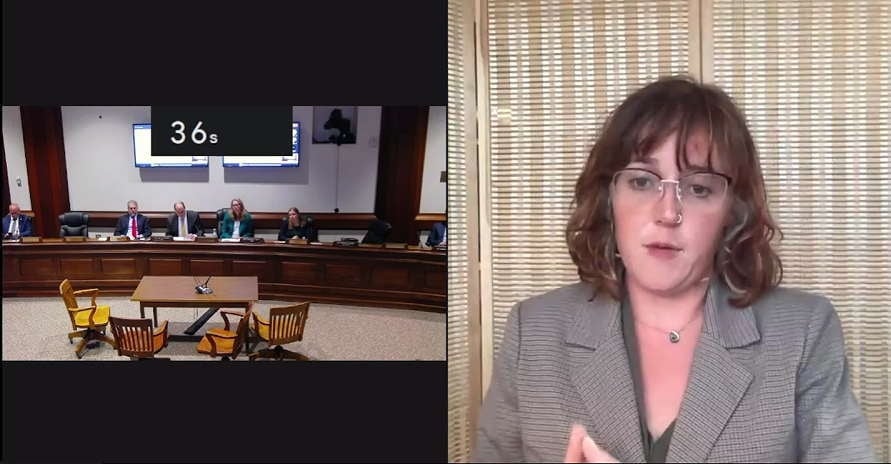
Staff Attorney Becca Cleary testifies in front of the Joint Judiciary Committee in Massachusetts.
DSW Newsletter #47
DSW Attends Top Adult Content Industry Conference

RI Study Commission Concludes
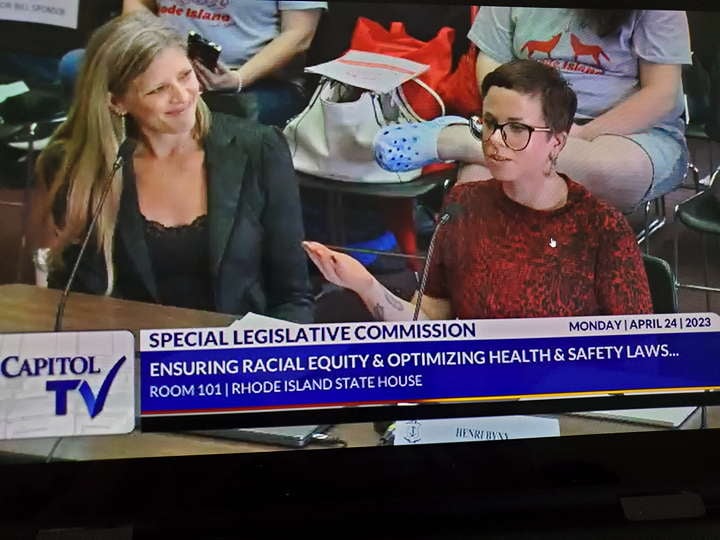
DSW Hosts NY Lobby Day of Action Against Gender-Based Violence
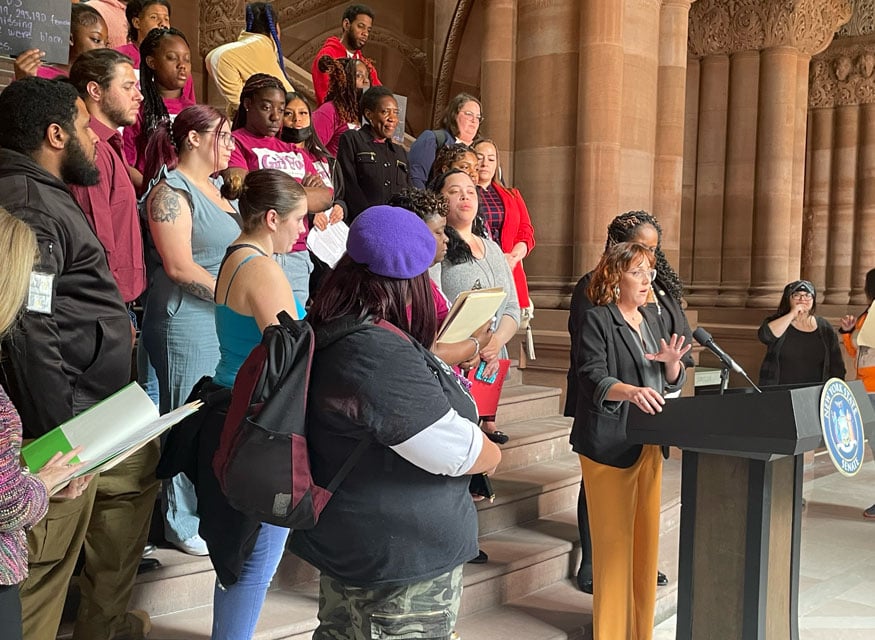
DSW Testifies on Important Legislation in MA, ME, & RI

